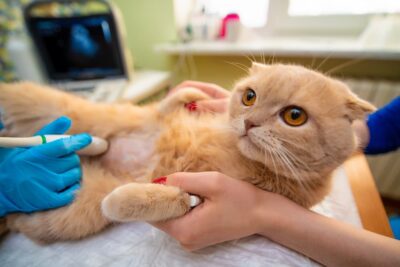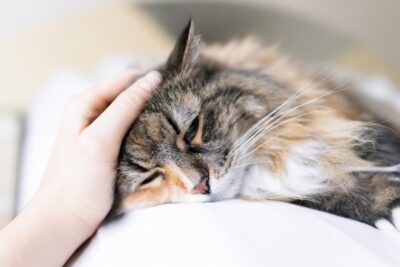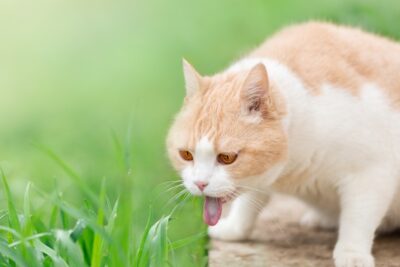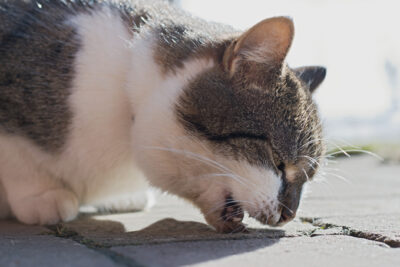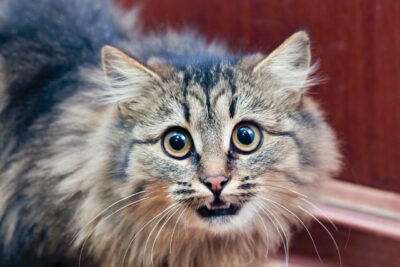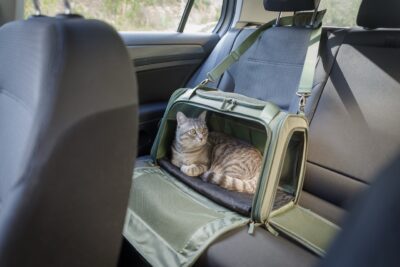Kidney Disease in Cats Treatment Plan: Steps and What to Expect
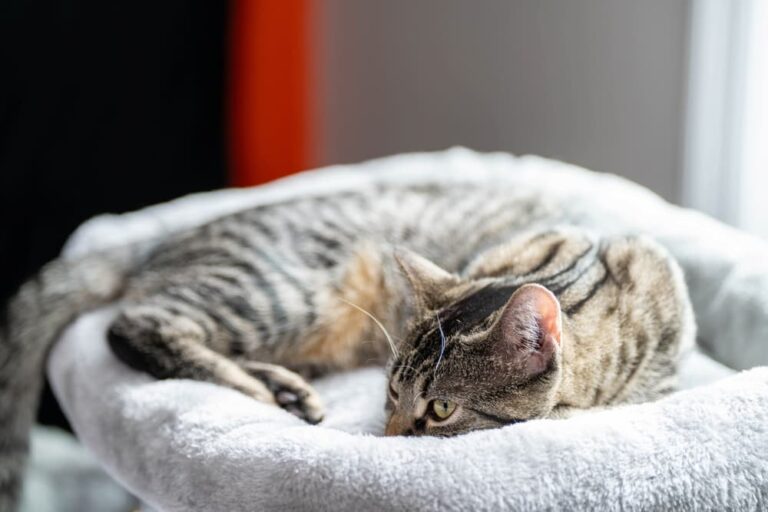
Kidney disease occurs in 1 percent of all cats, and one-third of cats over 15 years old. If you have had an older cat before, chances are you have heard of kidney disease. Cats who have no signs of illness can be diagnosed with kidney disease, which may leave you wondering whether it can—or should—be treated. And since it’s incurable, what can be done to support your cat with this disease?
Read on to understand what to expect for treatment after your cat is diagnosed with kidney disease.
Kidney Disease in Cats Treatment Plan: What to Expect

How a cat is treated for kidney disease depends on two important factors: is it acute or chronic? If it is chronic, what stage are they in?
Acute kidney disease is when signs come on suddenly. It can occur when a toxic substance is eaten, bacterial infections involving the kidneys, or when your cat already has underlying kidney disease and something else is wrong, like being dehydrated. Cats with acute kidney disease are usually hospitalized, staying in the hospital to get fluids through a catheter (intravenous or IV fluids), medications, and close monitoring. If your cat can be treated at home, you will likely need to give fluids under the skin (subcutaneous or SQ fluids) at least once daily, plus several other medications.
Chronic kidney disease is when the kidneys are slowly worsening and can occur over years before signs are noticed. Most times we cannot identify a cause – it could be your cat is prone to kidney disease for genetic reasons, but it also occurs with other medical issues such as urinary tract infections. Most cats are started on a special diet and supplements. Not all cats require fluids or medications, but if your cat is experiencing signs of illness, medications will help with improving quality of life by increasing appetite and decreasing vomiting.
If your cat has chronic kidney disease, your veterinarian will run a couple of blood and urine tests to determine what stage he is in:
- Stage 1: this is the earliest stage of kidney disease, often before cats have signs of illness. Unless your cat has high protein in the urine, your veterinarian is unlikely to recommend a special diet or supplements.
- Stage 2: This is the most common stage of kidney disease. If your cat has signs of illness, they are often mild. Your veterinarian is likely to recommend a special diet formulated for cats with kidney disease. Depending on electrolyte values and urine protein testing, your cat may need medication or supplements.
- Stage 3: Most cats are experiencing signs of illness at this stage. Your veterinarian will highly recommend a special diet, medications are likely, and SQ fluids are possible.
- Stage 4: This is the final and worst stage of kidney disease. Your cat is likely showing many signs of illness. Your veterinarian will recommend a special diet if your cat is willing to eat it, medications, and SQ fluids. He may be hospitalized initially to help decrease dehydration and get your cat feeling better before he goes home to continue treatments.
Kidney Disease in Cats Treatment Cost
Cats with kidney disease require routine testing to monitor their health. For chronic kidney disease, depending on stage and how well your cat is feeling, your veterinarian will recommend visits every 3-6 months. Bloodwork, urine, and blood pressure testing are frequently performed to start treatments as needed. This can cost anywhere between $200 and $500 per visit.
Ideally cats would be fed prescription canned food to increase the amount of water in their diet and regulate secondary issues associated with kidney disease. On average, this costs $125 per month. However, if your cat really loves dry food or the budget is tight, dry kidney diets will cost on average $35-$65 per month.
Medications vary widely and therapy plans are unique to each cat. Estimating cost is almost impossible, but pet parents can expect to spend anywhere from $15 to $150 per month depending on severity of disease.
Cat Kidney Disease Medications

Common medications used to manage signs of illness associated with kidney disease include:
- Aluminum hydroxide. This decreases phosphorus in cats. It comes in a powder or gel. Because the powder tastes bitter, it can be placed into gel capsules if needed.
- Calcitriol. This hormone regulates phosphorus, and low levels of calcitriol – frequent in cats with kidney disease – can lead to secondary hyperparathyroidism. It is often compounded into a liquid.
- Erythropoietin. Stimulates the formation of more red blood cells to combat anemia. This is an injectable medication given under the skin.
- Fluids such as Lactated Ringer’s Solution (LRS). This hydrates cats, flushing toxins out of the bloodstream that the kidneys can no longer process. This is given under the skin at home, or directly into the bloodstream (IV) in the hospital.
- Maropitant, commonly called Cerenia. This decreases nausea and inflammation in cats. It is a pill or an injection.
- Omeprazole. This decreases stomach acid in cats, which can accompany kidney disease. It is a pill.
- Potassium. Supplements a lack of potassium. This is a pill or powder to be mixed in food.
- Renal (kidney) supplements. These contain a combination of vitamins, amino acids, antioxidants, and holistic ingredients meant to improve the health of the kidneys. They come in powder, pill, and chew (treat) form.
Managing Kidney Disease Pain in Cats
Cats are not frequently in pain directly relating to kidney disease; however, when it does occur, pain from kidney stones, severe inflammation and infections can be severe. Most veterinarians will prescribe opioids like buprenorphine when this occurs. Gabapentin can help with forms of neuropathic pain and decreases general stress as well.
Many signs of illness that accompany kidney disease can lead to significant discomfort. Managing symptoms is the best way to decrease discomfort. Nausea or gastrointestinal pain can be treated with anti-nausea medications that are also anti-inflammatories like maropitant. Dehydration can be managed with SQ fluids.
Kidney Disease Cat Diet: What to Feed
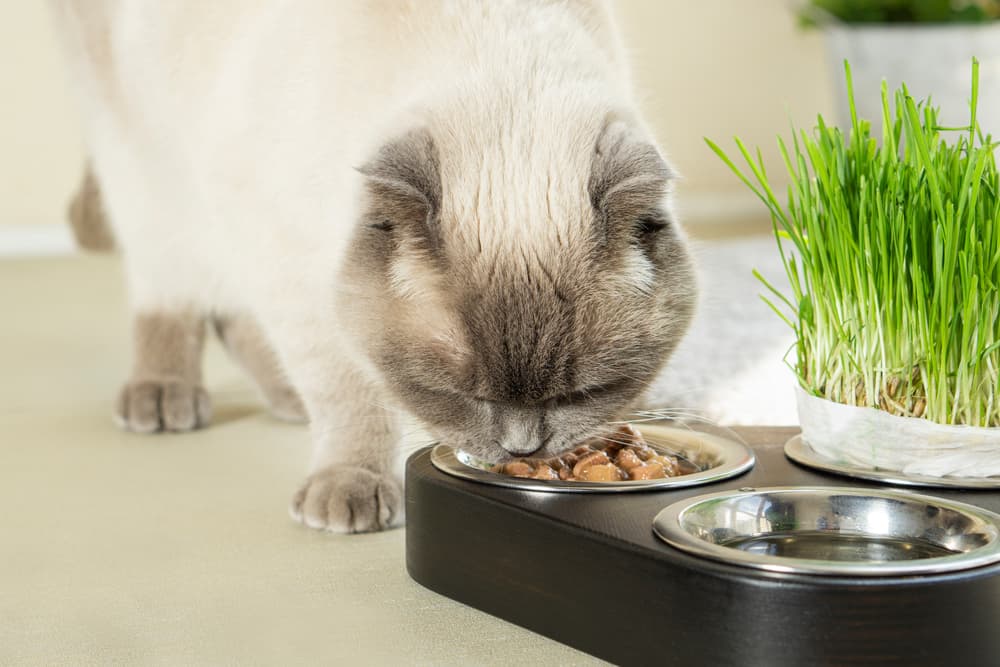
Pet parents should feed diets made for cats with kidney disease whenever possible. These diets are specially formulated to ensure your cat has all the nutrients he may need and in an easy-to-digest way. Phosphorus, a mineral in the body, is decreased in kidney diets since it is often too high in cats with kidney disease. Protein is also decreased in kidney diets. A high protein diet is hard on the kidneys since they process protein, and can actually be a cause of kidney disease.
Homemade cat food can be useful for cats with kidney disease, but a veterinary nutritionist’s advice must be sought. When diets are not well balanced by a nutritionist, it can have serious consequences for your cat’s health above and beyond kidney disease.
Special treats are not needed for cats with kidney disease if pet parents are keeping treats to less than 10 percent of their total caloric intake. Some supplements that support kidney health are found in treat form and are a great choice for your cat.
Supplements for Cats with Kidney Disease
Many supplements support kidney health in cats. Potassium is needed when levels are too low in your cat. Phosphate binders may be needed if phosphorus is too high. Low levels of vitamin D are linked to kidney issues in humans and may be supplemented in cats. Omega-3 fatty acids have been shown to decrease inflammation, reduce blood pressure, and decrease the risk of blood clots. Many supplements such as milk thistle extract, N-acetylcysteine, and melatonin are not only antioxidants but have been shown to have a positive effect on the structure of the kidneys.
Some combination commercial supplements are sold for cats with kidney disease. They typically include omega-3 fatty acids, vitamins, amino acids, and natural holistic ingredients that directly support kidney health such as Astragalus root, Cordyceps spp., and Rehmannia glutinosa root. Before giving any kidney supplements to your cat, be sure to speak with your veterinarian. Many supplements are not regulated by the FDA, so a manufacturer trusted by veterinarians should be chosen.
Support your cat’s water intake by offering some water flavored with low sodium chicken broth or tuna juice. Cat water fountains can increase interest in drinking water. Canned food diets are ideal to increase water in the diet.
Kidney Disease in Cats Treatment: Tips and Advice
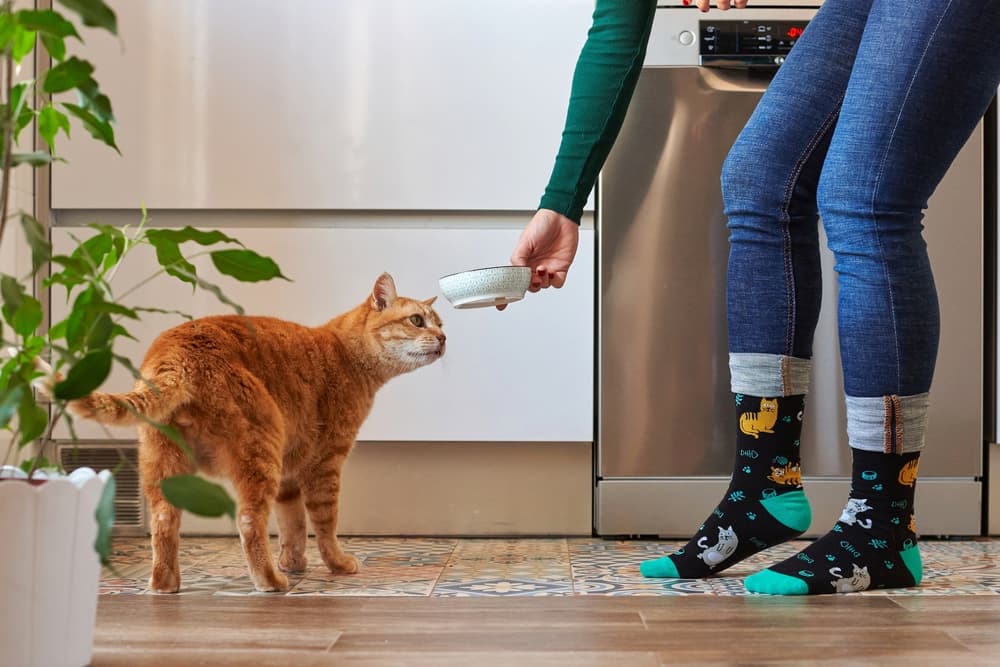
Once your cat starts therapy such as a prescription diet, you may not notice a difference if your cat wasn’t showing signs of illness before. However, most cats with signs of kidney disease see improvement almost right away with medications. Very ill cats may never be symptom-free, but many cats see significant improvement. Over time, a quality diet and supplements can maintain a healthy balance for your cat with minimal symptoms.
Always contact your veterinarian if signs of kidney disease do not decrease or new symptoms emerge. For example, if your cat was vomiting daily when diagnosed with kidney disease, speak with your veterinarian if after a week or two of therapy there has been no improvement. If your cat has started vomiting and wasn’t vomiting regularly before—contact your veterinarian to discuss options.
If you struggle to give medication to your cat, call your veterinarian. There are many possible solutions for getting medications into your cat. Compounding pharmacies can make medications into liquid, pills, paste, capsules, powder, or even tasty treats. Cats can be trained to (better) accept medication by using positive rewards like catnip, treats, or special toys.
The most important thing to remember: your goal is to keep your cat feeling good. It is more important that your cat eat a balanced diet than it is for your cat to eat a prescription kidney diet. Don’t focus on whether your cat’s blood kidney values have worsened as much as ensuring your cat eats, plays, and enjoys the things they always have. Be very communicative with your veterinary hospital about what your cat needs.
